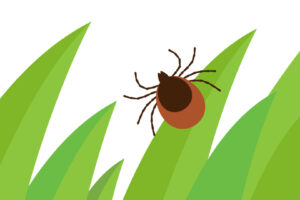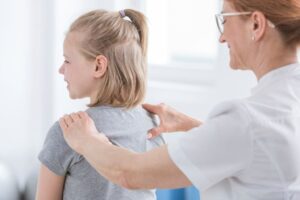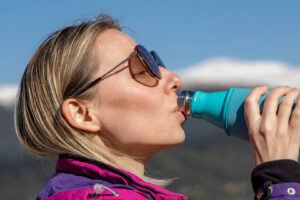Five-year-old Mikey Mendez loves sea creatures and is obsessed with letters and numbers. His brother, Max, lives up to the term “terrible twos” by being a bit mischievous; he enjoys taking things apart and putting them back together. Their mother, Lauren, says both of her boys are very smart, and have a special bond.
But from the time Mikey was born, Lauren saw signs that concerned her.
“From early on, Mikey did not make eye contact,” she says. “He was not meeting developmental milestones and I knew something wasn’t right.”
Lauren did her own research, and quickly saw signs of autism. She knew that early intervention was key.
Autism spectrum disorder (ASD) is a developmental disability caused by differences in the brain resulting in a broad range of conditions including challenges with speech, social skills and repetitive behaviors. Individuals with ASD often communicate, behave and learn in ways that are different from others. It is estimated that 1 in every 44 children in the United States is affected by autism.
Mikey, who is nonverbal, was diagnosed with autism at age two. Then Max came along, and Lauren and her family were faced with a new set of challenges.
“Mikey was upset when Max arrived,” Lauren recalls. “Max cried a lot. It was a big adjustment to bring a baby into the house with a special needs child.”
Max also experienced issues, including decreased muscle tone, a buildup of fluid in the brain, speech delays and trouble feeding and swallowing. As Lauren navigated the boys’ developmental needs, she vowed to obtain the best services and support possible for them to thrive. Thankfully, she didn’t need to look far. As a patient care technician at CentraState for the past seven years, Lauren turned to her very own colleagues for help.
Successful Team Approach
Today, speech-language pathologist Danielle DaCunha and physical therapists Edita Kotes Nestepny and Marina Adly play important roles on the boy’s care team. Their pediatric rehabilitation services at CentraState’s OceanFirst Rehabilitation Center are designed to assist Mikey and Max in reaching their full potential. Lauren says they’re like family to her, all working toward the same goals.
“Lauren implements our recommendations at home, which helps her sons make progress,” says Danielle. “Compared to assistive services a child may receive at school, our approach focuses heavily on functional communication skills needed for everyday activities, including being able to ask for basic needs and express emotions to promote more effective communication.”
Assistive Technology
Recently, Danielle was an advocate in helping Lauren get Mikey his own augmentative and alternative communication (AAC) device that he could use 24/7, both at home and at school. Similar to a computer tablet, the device has assistive technology that can benefit children with autism by expanding their communication, social and interaction skills. It allows him to communicate through pictures or symbols, expand his vocabulary and even watch his favorite movies and TV shows.
“With the AAC, Mikey has fewer episodes of being frustrated and upset because he’s able to tell us what he wants and needs,” says Lauren, who is grateful for this technology.
Edita has been treating Max since he was an infant, something she says is crucial for the best outcomes, since a child’s physical development in the first three years of life is the most important. She’s proud to say he is achieving all of his milestones: he transitioned from liquid to solid food, and he’s running, climbing and jumping as expected from an active two-year-old.
Addressing Concerns
Danielle, Edita and Marina urge parents concerned with their child’s physical, developmental, communication or academic progress to talk with their pediatrician and schedule an evaluation at CentraState.
“Services such as physical, occupational, speech and even aquatic therapy in our own pool can offer great benefits for young patients,” Edita says.
Even though Lauren works at a different job upstairs, she is proud to be on the CentraState team with her boys’ rehab professionals.
“They give personalized, phenomenal care to all children, not just mine,” she says. “I am simply amazed by the dedicated care my children receive here.”
For more information about pediatric rehabilitation services at CentraState, visit centrastate.com/services/pediatric-rehabilitation/ or call 866-CENTRA7 (866-236-8727).





